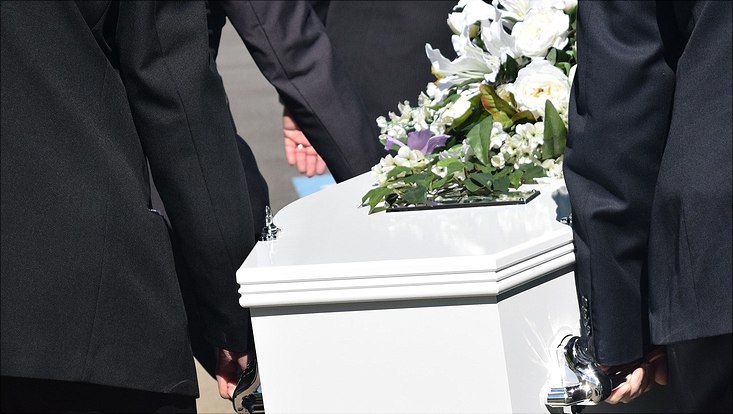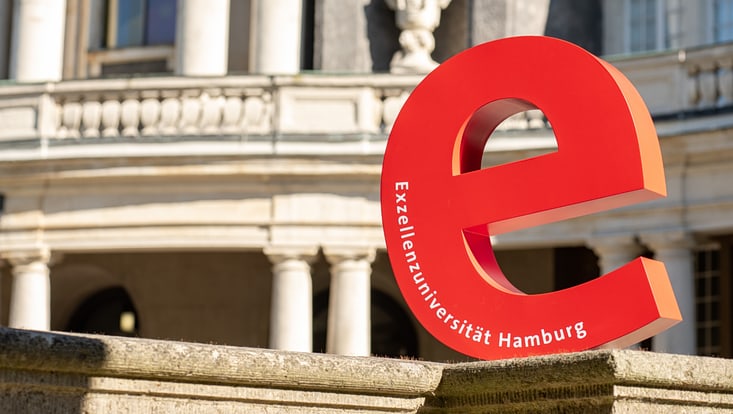New Funding Program for Solutions to the Corona CrisisCan undertakers catch corona?
22 September 2020, by Christina Krätzig

Photo: Pixabay CC0
As part of the funding of transfer projects, Universität Hamburg has created the special program format “Mehr Weitblick nach der Coronavirus-Krise”; (a broader perspective after the corona crisis). Thirteen projects will each receive up to €10,000 for research focusing on the novel coronavirus and its effects on health, the economy, and society, in the search for ways out of the crisis. The funds come from the Excellence Initiative of the Federal and State Governments. Here, we introduce 3 projects:
How contagious are the bodies of Covid-19 victims?

The march of the novel coronavirus through Germany has made many feel very insecure, particularly when it comes to dealing with those who are sick or have died. For example, what does it mean for members of staff in hospitals, in churches, or in funeral homes? Are the bodies of the victims contagious? How significant is the danger? And how can one protect oneself? These are fundamental questions, for which we have yet to find satisfactory answers. Similarly, we do not know if it is really necessary to isolate the bodies of those who have died of or with Covid-19, or if their families can see them once more before the funeral.
Antonia Fitzek, assistant doctor in her third year of studies at the Institute of Legal Medicine at the University Medical Center Hamburg-Eppendorf doubts the need for current practice. “The virus is transfered via droplets. I don’t see a conclusive risk of infection only from looking at or touching a person who has died.” she said. To get some much needed clarity on this point, she is researching whether traces of the virus can be found on deceased persons who tested positive for Covid-19 prior to their death.
Her goal: “We take samples from the skin of deceased person, from the body bags used to transport them, and the coffins, from every surface that is often touched.” she explained. By the end of the year, she will have conducted these tests on every person who has died in Hamburg with or from Covid-19. The tests and the distribution of survey forms to Hamburg funeral homes and church communities are paid for with €10,000 funding from Universität Hamburg. Fitzek hopes to use the surveys to identify open questions and suggestions for improvement drawn from practice.
So far, she has tested 8 cases, all with negative results. She emphasizes that “the number of cases tested is still too small to make a generally useful statement.” But, the initial results are reassuring.
How is the coronavirus pandemic changing global shipping and goods transport?

Global trade has suffered markedly during the coronavirus pandemic, sometimes with dramatic results. In particular, the supply of medical equipment, PPE, and medicines fell short of demand. That is because there are very few, if any, countries who produce all the products they need to care for their populations and combat SARS-CoV-2. For example, Germany specialized in the production of medical devices, while PPE must be imported from China or Malaysia.
Using the example of medical equipment, economist Prof. Qing Liu from the Faculty of Business Administration is examining the flow of products between Germany and China during the crisis, with a particularly close look at the forms of transport used. As many ports were closed, sea freight, which usually transports more than 90 percent of goods traded globally, was severely restricted. Costs in air transport exploded, as passenger flights reduced dramatically, thereby also reducing the amount of goods that could be transported on board passenger aircraft. Only rail transport seems to have profited. The number of trains running from the People’s Republic of China as far as Duisburg in the spring of 2020, along what is referred to as the New Silk Road, increased significantly.
In her research project, Prof. Liu will bring together the data on trade in medical goods using air and sea transport as well as rail. “The results should let us act proactively should we have a second wave, or any other kind of crisis. We live in a connected world that is dependent on trade.” says Prof. Liu. The funding, amounting to €10,000, will go toward paying for academic staff and to bring the data required together. Their research report will be made accessible to everyone over the internet, and live talks and presentations are also being planned.
What effect is the pandemic having on consumer behavior?

Fundamental crises, like the current Covid-19 health crisis, change living conditions and can also shift human needs. Measuring these shifts is challenging. Crises are only rarely able to be identified in advance. As a result, there is a lack of appropriate psychometric testing prior to, during, and after a crisis.
Prof. Dr. Mark Heitmann and his team are therefore drawing on historical data for online-searches. His assumption is that changes in human needs will result in changes to their internet searches. As a result of the current Covid-19 crisis, he and his team are developing a methodology to connect daily search behavior with changes in human needs.
“We still don’t know much about whether needs change during a crisis, or how.” explains Mark Heitmann, Professorship for Marketing and Customer Insight at the Faculty of Business Administration. “But it is relevant, as our existence as a society and our social economy ultimately exist to satisfy human needs. Only when we understand these needs can we find the right services and products, and implement appropriate political measures.”
To inform the public about his research findings, Prof. Heitmann is publishing in both academic and specialist-practice magazines. The process they have developed has resulted in international start-ups that now employ hundreds of people. The €9,000 funding will go towards funding representative studies, appropriately coding the comprehensive amount of data, and the analysis of this material using modern machine-learning processes.
Mehr Weitblick nach der Coronavirus-Krise (a broader perspective after the corona crisis)
Transfer funds from the Excellence Strategy of the Federal and State Governments have been used for the specialized “Mehr Weitblick nach der Coronavirus-Krise (a broader perspective after the corona crisis)” transfer project, aimed at identifying a sustainable way to manage the crisis in line with the University’s guiding principle of “Innovating and cooperating for a sustainable future.” The goal is to support companies and founders facing an existential threat from the pandemic with research and new knowledge that responds to challenges of the pandemic in a scientific way. Knowledge gained through university engagement may also open up new business models, and help to mitigate the enormous political, social, psychological, and economic challenges being faced in all aspects of life as a result of the current coronavirus pandemic and the associated lock-down.


